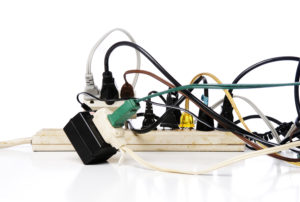4 Home Safety Tips for When Your Loved One Has Memory Issues
 Home Health Care Plantation FL
Home Health Care Plantation FL
Whether your loved one is in the beginning stages of dementia or has memory issues for another reason, home safety can be challenging. Try some of these tips to make the home safer for your loved one with the help of your home health care providers.
Child-proof Doors and Cabinets
If your loved one tends to wander or there are cabinets that may contain something you don’t want your loved one to have unfettered access to, there are child-proof door knob covers and cabinet locks that you can install. You may only want to use them during certain times of the day or when your loved one is more likely to wander. In that case, they’re easy to remove and put back in place when you need them.
Lock Away Household Chemicals
Household chemicals should always be stored somewhere that your loved one can’t access them. This is especially true for any containers that look like something that’s similar but harmless. Cleaning supplies, painting supplies, insecticides, and other chemicals can all be kept in the garage in a locked cabinet. If you need to keep them in the house, try keeping them in a closet or cabinet that you can secure with a lock.
Clean Out the Refrigerator Weekly
If your loved one has significant memory issues, sometimes that can extend to not realizing that food isn’t safe to eat. To keep this problem from becoming a serious one, make it a point to clean out the refrigerator every week without fail. You can also start to label leftover containers with the date they were refrigerated so that you can keep better tabs on what should stay and what should go.
Do Regular Safety Checks
Doing a regular safety sweep of the entire house can help you to spot problems before they become too big. Clutter or overloaded outlets are two problems that can crop up quickly without you realizing it unless you start to look for them. Set a regular time to go through the house and to make sure that there isn’t anything dangerous lurking anywhere.
If you need extra help figuring out how to make your loved one’s home safer, try talking to your loved one’s home health care providers. They’re skilled at spotting dangerous situations for loved ones with memory issues.
